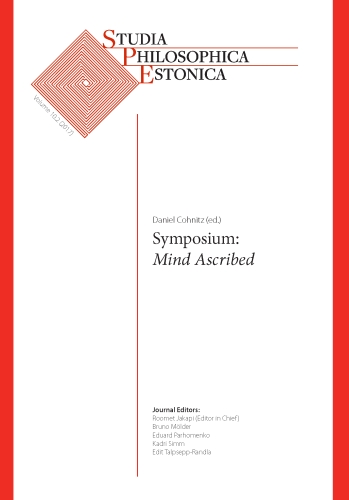Whither Normativity?
DOI:
https://doi.org/10.12697/spe.2017.10.2.07Keywords:
mental ascription, intentionality, interpretivism, SellarsAbstract
Bruno Mölder’s Mind Ascribed offers an important and impressive criticism of substantial naturalistic accounts of mental activity that predominate much recent philosophy of mind, as part of a defense of a relatively deflationary form of interpretivism. However, I suspect that Mölder has overly downplayed normative aspects of mental ascription, and that he could profitably enlist the work of those who take Sellars seriously to explain how the actual behavior of subjects of ascription can depart so dramatically from the norms of rationality to which they are properly held.
References
Beisecker, D. (2006). Dennett’s overlooked originality, Minds and Machines 16: 43-55.
Brandom, R. (1994). Making It Explicit, Harvard University Press, Cambridge, MA.
de Vries, W. and Triplett, T. (eds) (2000). Knowledge, Mind, and the Given, Hackett, Indianapolis.
Dretske, F. (1988˜). Explaining Behavior: Reasons in a World of Causes, MIT Press, Cambridge, MA.
Mölder, B. (2010). Mind Ascribed: An Elaboration and Defence of Interpretivism, John Benjamins.
Reider, P. J. (ed.) (2013). Normative Functionalism and the Pittsburgh School, Social Epistemology Review and Reply Collective. URL: http://social-epistemology.com/tag/normative-functionalism/





